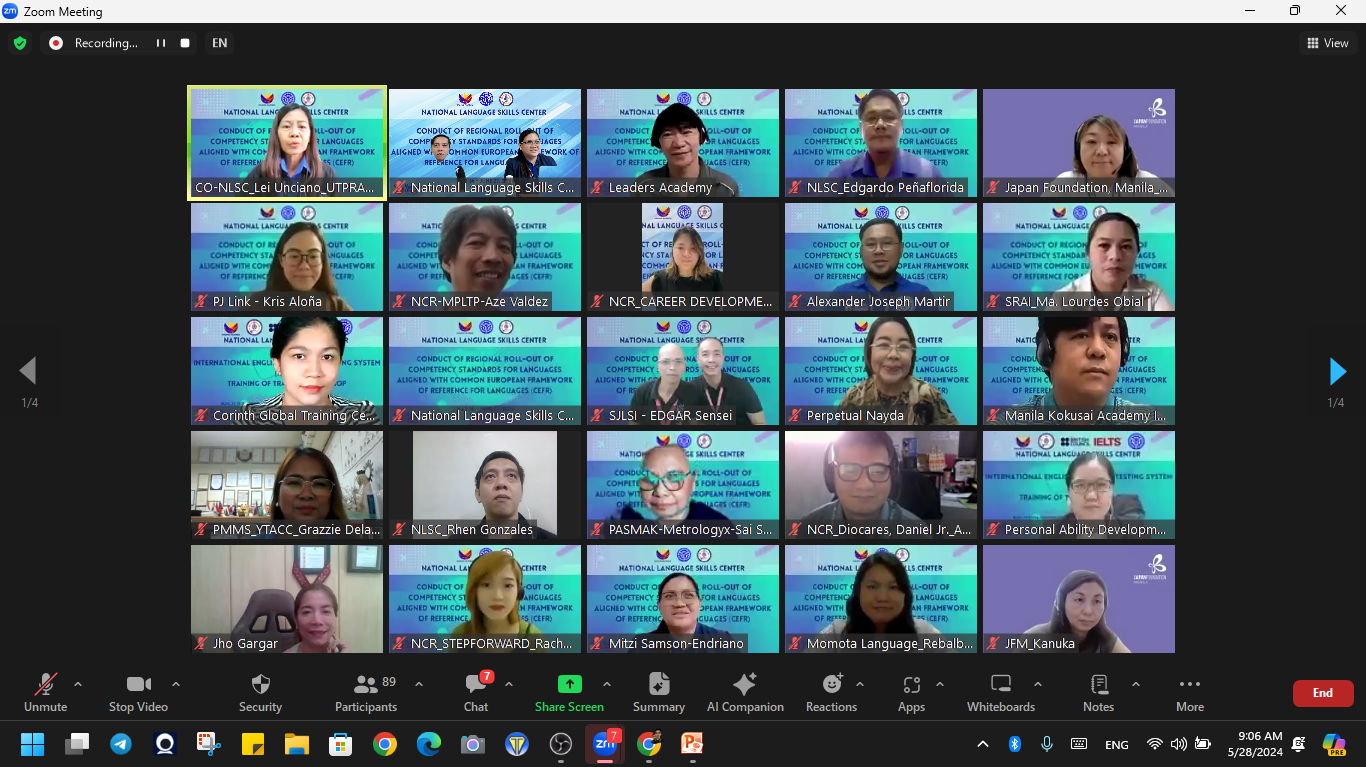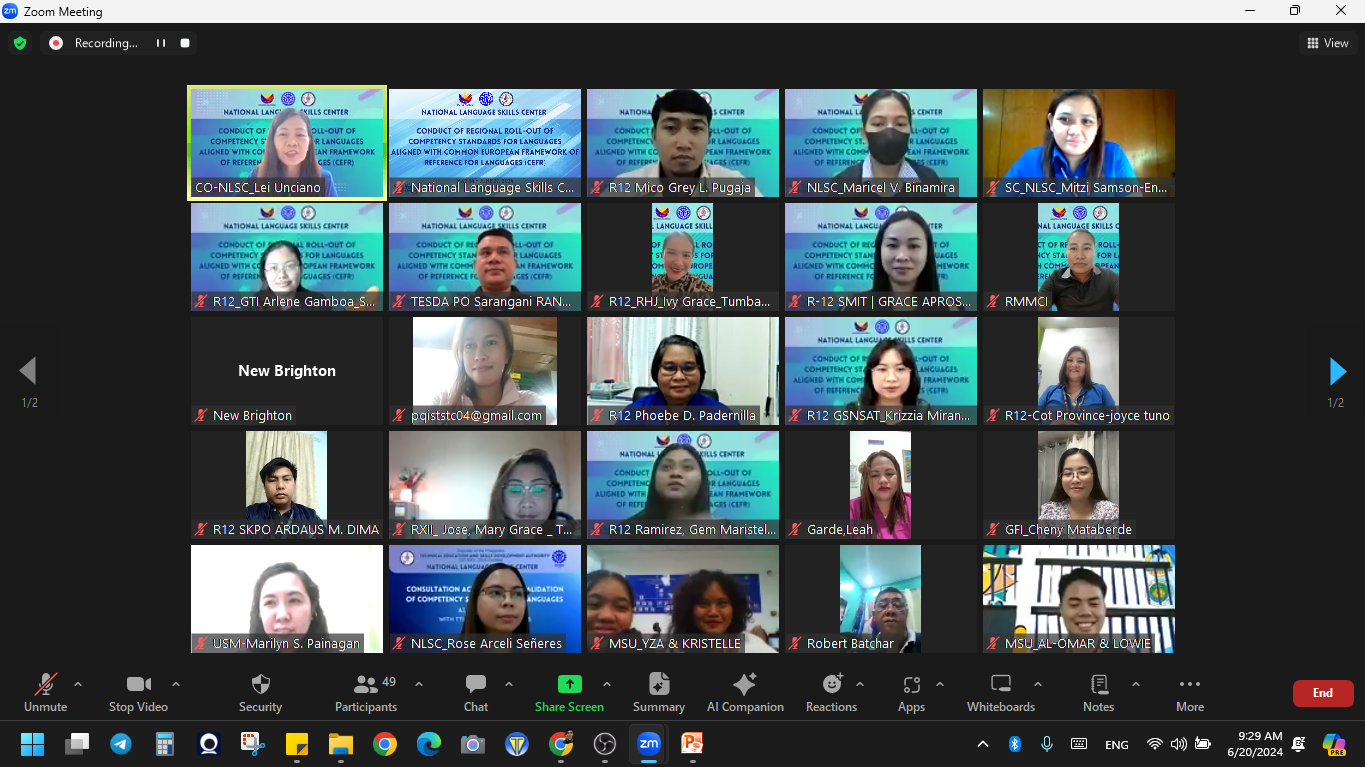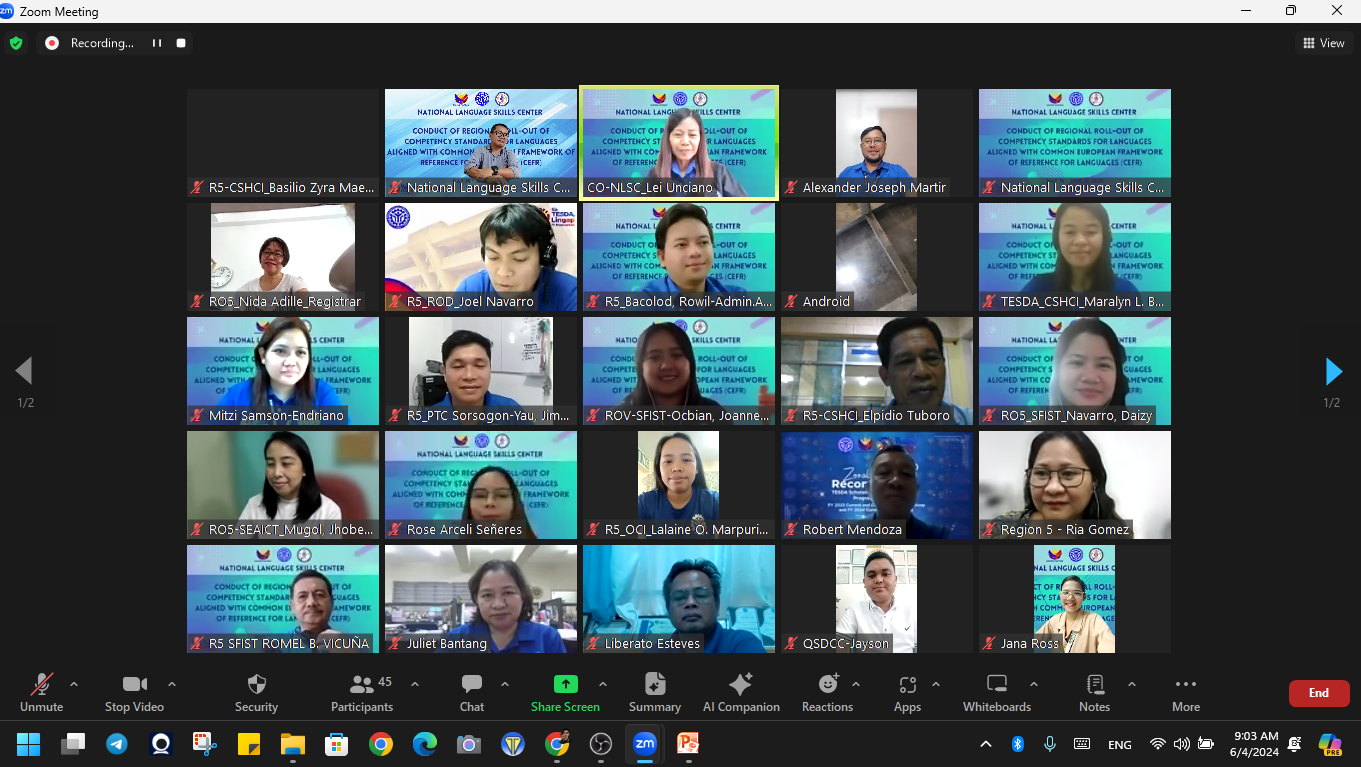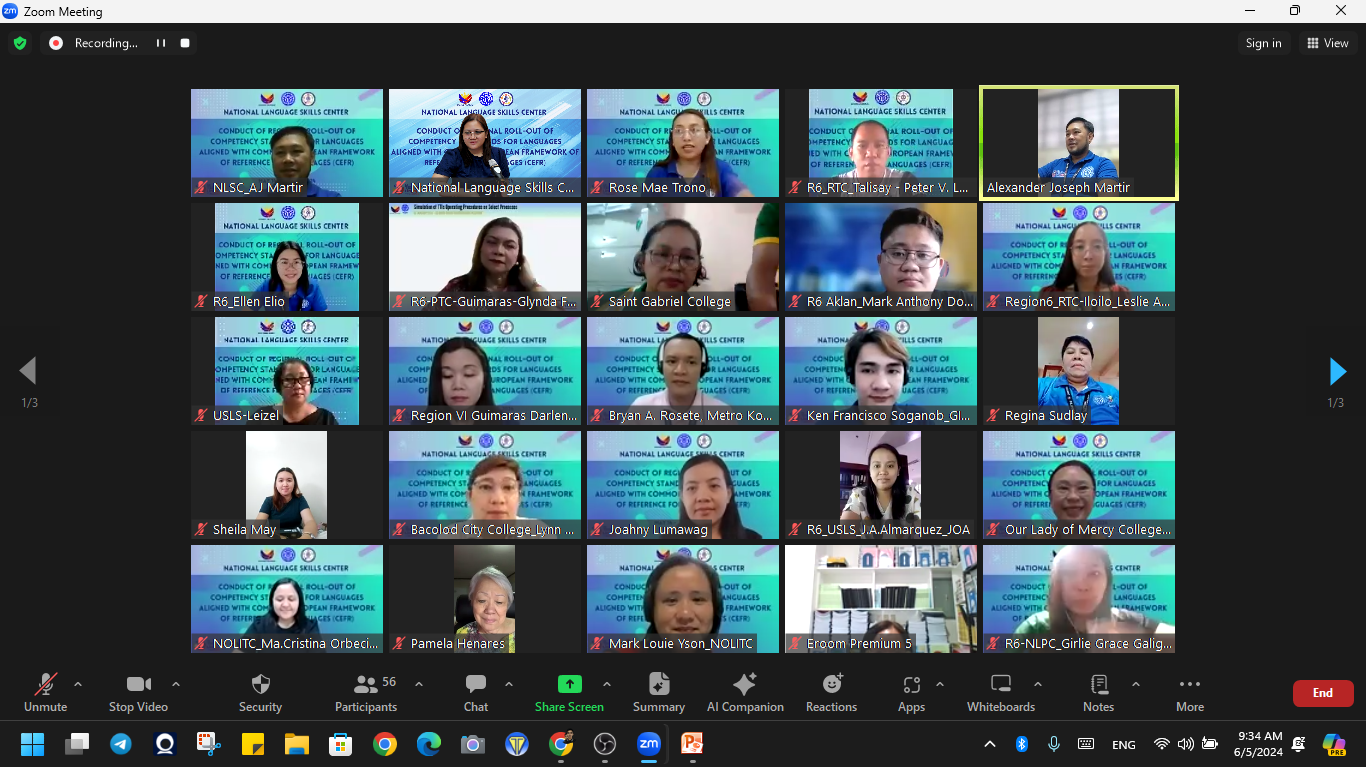July 21, 2024
Strengthening the country’s language training programs, the Technical Education and Skills Development Authority (TESDA) conducted the regional rollout of its newly developed competency standards (CS) for foreign language training programs.
From May 14 to June 27, the National Language Skills Center (NLSC) facilitated a series of online regional rollouts of the CS for language to 641 participants nationwide.
According to TESDA Director General, Secretary Suharto T. Mangudadatu, the development of the CS for foreign language training programs aims to immediately respond to the industry skills requirement of language proficiency to produce competent individuals equipped with 21st Century Skills, and compliant with the existing industry standards and practices.
“The new CS, aligned with the Language A1, A2, and B1 levels of the Common European Framework of Reference (CEFR) for Languages standards, ensures that TESDA’s training and certifications remain relevant and valuable globally,” the Secretary said.
The rollout was participated by various administrators, language trainers, Unified Technical Vocational Education and Training (TVET) Program Registration and Accreditation System focal persons, and TVET coordinators and staff from public and private training institutions.
The participants were given an overview of the CEFR as well as an orientation on the Competency Standards for Languages – A1, A2, and B1 Levels, its implementing guidelines, contextual learning matrix and competency-based curriculum (CBC). A workshop on the development of competency-based learning materials and CBC development was likewise conducted.
Among the curricula developed during the rollout were English Language A2 Level, Korean Language A1 Level, and Japanese Language A1 Level, among others. The objective of the CBCs developed is for students and trainees to gain the fundamental principles of the macro-skills of language, focusing on communicative competence, workplace values, and culture.
The two-month activity was beneficial to equip the staff of TESDA Regional and Provincial Offices, as well as those from training institutions in preparing the documentary requirements for language program registration and re-registration.
It can be recalled that in 2023, TESDA developed the said CS in collaboration with experts in language education such as: British Council Philippines; Government Academe Industry Network, Inc.; Hopkins International Partner Inc.; Enderun Colleges Inc.; Philippine Association of Language Teaching; Inc.; Ambasciata Italiana/Embassy of Italy in Manila; Philippine Italian Association; The Japan Foundation; Association of Filipino Nihongo Teachers; Korean Cultural Center in the Philippines; Taipei Economic and Cultural Office in the Philippines; Embassy of Spain in the Philippines; Instituto Cervantes Manila; and, Department of European Languages — University of the Philippines Diliman, among others.
Meanwhile, Secretary Mangudadatu emphasized that the provision of work-based language and culture programs is an important intervention for job-ready workers to improve their employability and enhance their competitiveness.
“Language proficiency and a better understanding of the culture of their host country can enable Filipino workers overseas to communicate and relate better to their foreign employers,” the TESDA chief added.




Share this page





